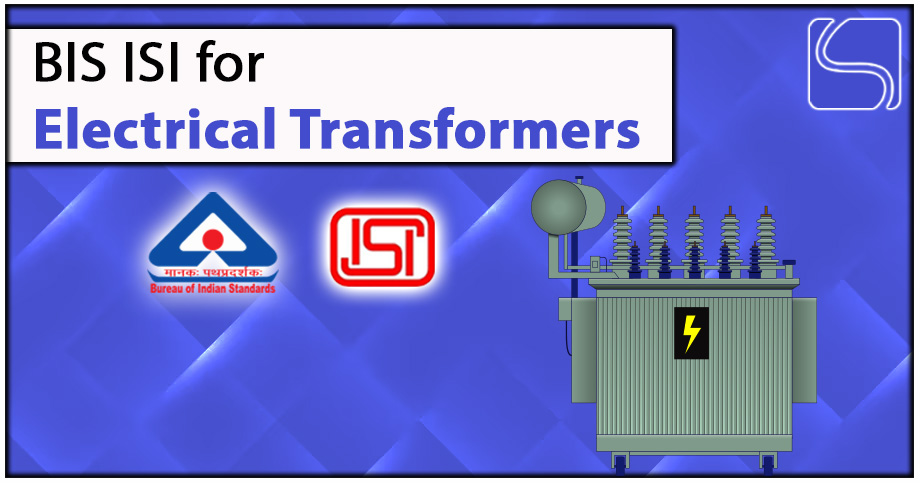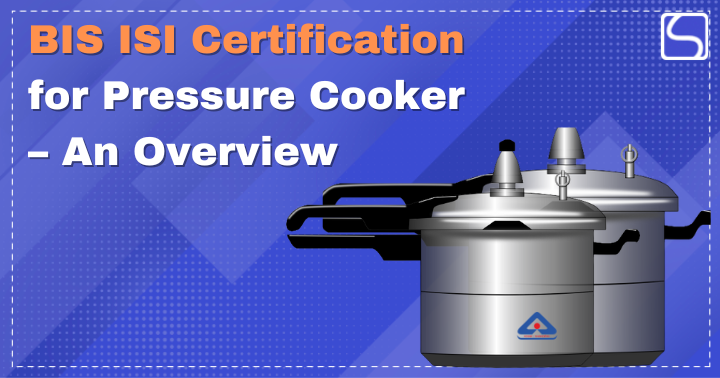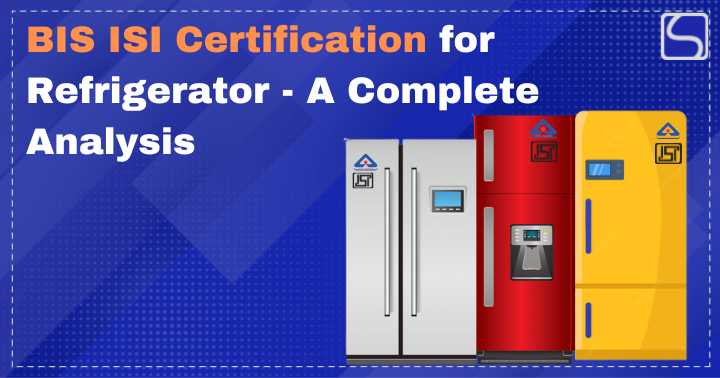BIS ISI for Electrical Transformers

Shivam Narwal | Updated: Mar 16, 2023 | Category: BIS
Electrical transformers are critical components of power systems. They are used to transfer electrical energy from one circuit to another, by electromagnetic induction. Transformers are used to step-up or step-down the voltage level of power for transmission and distribution, and also for many other applications in industries. Transformer failures can lead to serious consequences, such as power outages, equipment damage, and even life-threatening situations. Hence, it is essential to ensure the reliability and safety of transformers by testing and monitoring their performance. This blog discusses two important testing standards, BIS and ISI, for electrical transformers.
Table of Contents
Bureau of Indian Standards (BIS):
Bureau of Indian Standards (BIS) is a national standard-setting body in India, under the Ministry of Consumer Affairs, Food and Public Distribution. BIS has developed several standards for electrical transformers to ensure their quality and performance. These standards cover the design, manufacturing, testing, and operation of transformers, and also provide guidelines for their maintenance and safety. BIS standards for transformers include IS 2026, IS 1180, IS 2026-3, IS 11171, IS 1181, and many more.
IS 2026 is the primary standard for power transformers in India. It specifies the general requirements for transformers, such as rating, insulation, cooling, noise level, and many more. IS 1180 is another important standard that covers the requirements for distribution transformers. IS 2026-3 provides guidelines for testing of power transformers, including routine tests, type tests, and special tests. IS 11171 specifies the requirements for transformer oil, which is an essential component of transformers.
BIS also provides certification services for transformers, which ensure that the transformers meet the relevant standards and are of good quality. BIS certification is mandatory for certain types of transformers, such as power transformers, distribution transformers, and furnace transformers.
Indian Standards Institution (ISI):
Indian Standards Institution (ISI) is another national standard-setting body in India, which was established in 1947. ISI has developed several standards for electrical transformers, which are similar to BIS standards. The major difference between BIS and ISI standards is that ISI standards are applicable to products that are meant for export, while BIS standards are applicable to products that are meant for the Indian market.
ISI standards for transformers cover the same areas as BIS standards, such as design, manufacturing, testing, and operation. Some of the important ISI standards for transformers include IS 2026, IS 1180, IS 2026-3, IS 11171, and many more. The requirements specified in ISI standards are similar to those specified in BIS standards.
Parameters Covered by BIS Standards for Electrical Transformers:
BIS has developed several standards for electrical transformers that cover the following parameters:
- Design and Construction: The standard specifies the requirements for the design and construction of transformers, including the type of core, winding, insulation, and cooling systems.
- Rating and Performance: The standard specifies the ratings and performance requirements for transformers, such as rated voltage, frequency, efficiency, and power factor.
- Testing: The standard specifies the testing requirements for transformers, including routine tests, type tests, and special tests.
- Maintenance: The standard provides guidelines for the maintenance of transformers, including inspection, cleaning, and testing.
- Safety: The standard specifies the safety requirements for transformers, including protection against electric shock, fire, and explosion.
Parameters Covered by ISI Standards for Electrical Transformers:
ISI standards for electrical transformers cover the same parameters as BIS standards, including design, construction, rating, performance, testing, maintenance, and safety. The main difference between BIS and ISI standards is that ISI standards are applicable to products that are meant for export.
BIS and ISI Certification Process for Electrical Transformers:
The certification process for electrical transformers involves the following steps:
- Application: The manufacturer applies for certification by submitting the necessary documents and samples of the transformer.
- Testing: The transformer is tested by an authorized testing agency to ensure compliance with the relevant standards.
- Inspection: The manufacturer’s production facility is inspected by the certification agency to ensure compliance with the relevant standards.
- Certification: If the transformer meets the relevant standards, the certification agency issues a certificate of conformity.
Benefits of Adhering to BIS Standards for Electrical Transformers:
Adhering to BIS standards for electrical transformers has several benefits, including:
- Quality Assurance: BIS certification assures customers of the quality and safety of transformers.
- Compliance: Adherence to BIS standards ensures compliance with the regulatory requirements.
- Marketability: BIS certification enhances the marketability of transformers by demonstrating compliance with national standards.
- Customer Satisfaction: BIS certification ensures customer satisfaction by providing them with high-quality and safe transformers.
International Standards for Electrical Transformers:
There are several international standards for electrical transformers, including:
- International Electrotechnical Commission (IEC) Standards: IEC is a global organization that develops and publishes standards for electrical and electronic devices, including transformers. IEC standards cover the design, construction, testing, and performance of transformers.
- American National Standards Institute (ANSI) Standards: ANSI develops and publishes standards for various industries, including the electrical industry. ANSI standards cover the design, testing, and performance of transformers.
- Institute of Electrical and Electronics Engineers (IEEE) Standards: IEEE develops and publishes standards for electrical and electronic devices, including transformers. IEEE[1] standards cover the design, construction, testing, and performance of transformers.
Differences between BIS and ISI Certification for Electrical Transformers:
The main differences between BIS and ISI certification for electrical transformers are:
- Applicability: BIS certification is mandatory for transformers intended for the Indian market, while ISI certification is mandatory for transformers intended for export.
- Certification Process: The certification process for BIS and ISI certification is similar, but the certification agency is different. BIS certification is issued by the Bureau of Indian Standards, while ISI certification is issued by the Indian Standards Institution.
- Standards: BIS and ISI standards cover the same parameters, but there may be minor differences in the specifications.
Future of Transformer Standards in India:
The future of transformer standards in India looks promising with the following developments:
- Adoption of International Standards: The Indian transformer industry is moving towards adopting international standards such as IEC and ANSI to improve the quality and reliability of transformers.
- Implementation of New Regulations: The Indian government has introduced new regulations such as the Energy Conservation Act and the National Electric Mobility Mission Plan that will drive the adoption of energy-efficient and eco-friendly transformers.
- Focus on Research and Development: The transformer industry in India is investing in research and development to develop new technologies and improve the efficiency and reliability of transformers.
- Increasing Demand for Renewable Energy: The increasing demand for renewable energy sources such as solar and wind power will drive the development of new transformers that can handle the fluctuating power supply.
Conclusion
adherence to the necessary quality standards for electrical transformers is crucial for ensuring their reliability and safety in power transmission and distribution systems. BIS/ISI certification standards cover various critical parameters such as electrical, mechanical, and environmental performance, and compliance with these standards can ensure high-quality transformers. International standards such as IEC, ANSI, and IEEE also provide essential guidelines for transformer manufacturers and customers worldwide. The future of transformer standards in India looks promising, with the adoption of international standards, new regulations, focus on research and development, and increasing demand for renewable energy. By adhering to these standards, manufacturers can ensure the safety and reliability of their products, and customers can have confidence in their transformer’s quality and performance.
Also Read: BIS ISI certification for Electrical motors














